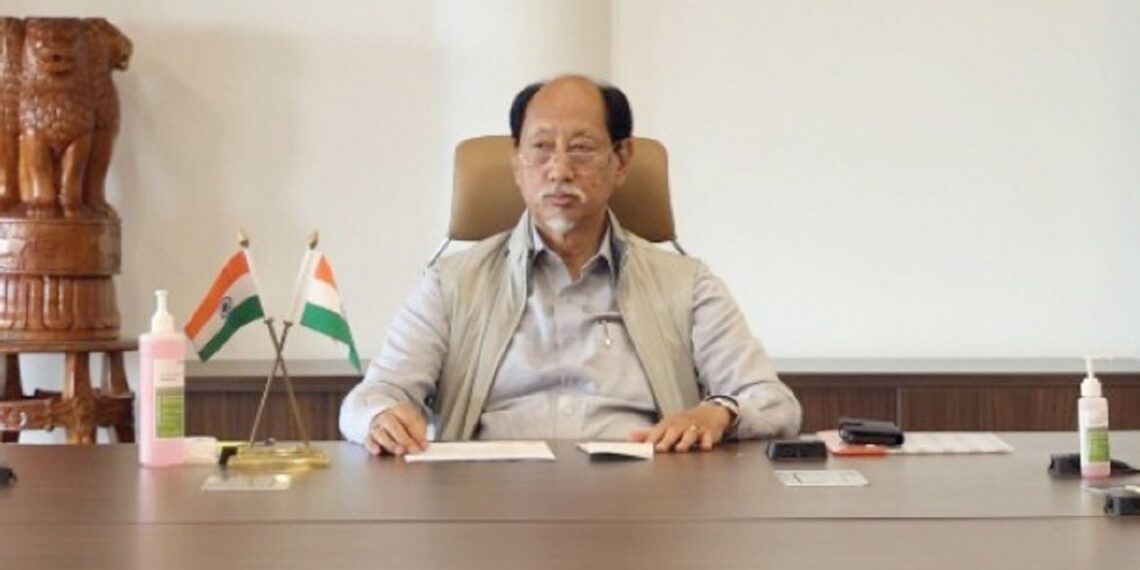KOHIMA: Chief Minister Neiphiu Rio has urged the Eastern Nagaland People’s Organisation (ENPO) to abstain from boycotting electoral processes, suggesting the potential establishment of an autonomous body through democratic processes and consultations.
Stressing on constructive engagement in resolving differences, Rio’s call came during the ticket distribution ceremony for the People’s Democratic Alliance’s (PDA) consensus candidate, Dr Chumben Murry, at the NDPP headquarters in Chümoukedima on Wednesday.
He highlighted that once formed, members of the autonomous body would also be elected, highlighting the need for mutual agreement on power-sharing to serve the people effectively.
ALSO READ Eastern Nagaland’s FNT push: Legislators set to meet interlocutor AK Mishra today
He disagreed with the idea of having the proposed autonomous council for the ENPO area controlled by the Governor, calling it “undemocratic.”
Rio compared it to being under President’s Rule, which is not allowed in the state. He emphasized that the elected government should have the final say and any autonomy must be agreed upon with the state government, which is willing to provide assistance.
He also assured that a state cabinet meeting with all 20 legislators from Eastern Nagaland will be held upon their return from Delhi.
While acknowledging ENPO’s call for an election boycott, Rio urged against such action, assuring that all issues would be discussed post-election.
The Chief Minister highlighted the indispensability of elected members from Eastern Nagaland, stressing the need for cooperation to avoid repercussions for the people.
ALSO READ Eastern Nagaland organisation vows poll boycott until ‘Frontier Nagaland Territory’ is granted
Advocating for a cooperative approach to find common ground, Rio advocated for an inclusive dialogue between elected representatives and the ENPO.
While acknowledging differences, Rio stressed on the shared goal of collective progress and prosperity, urging unity among all Naga communities in shaping the state’s future.
Highlighting development challenges in the ENPO area, Rio outlined key policy objectives observed by the cabinet, including addressing the development deficit, improving education, healthcare, and livelihood opportunities, and advocating for job reservation and higher studies.















